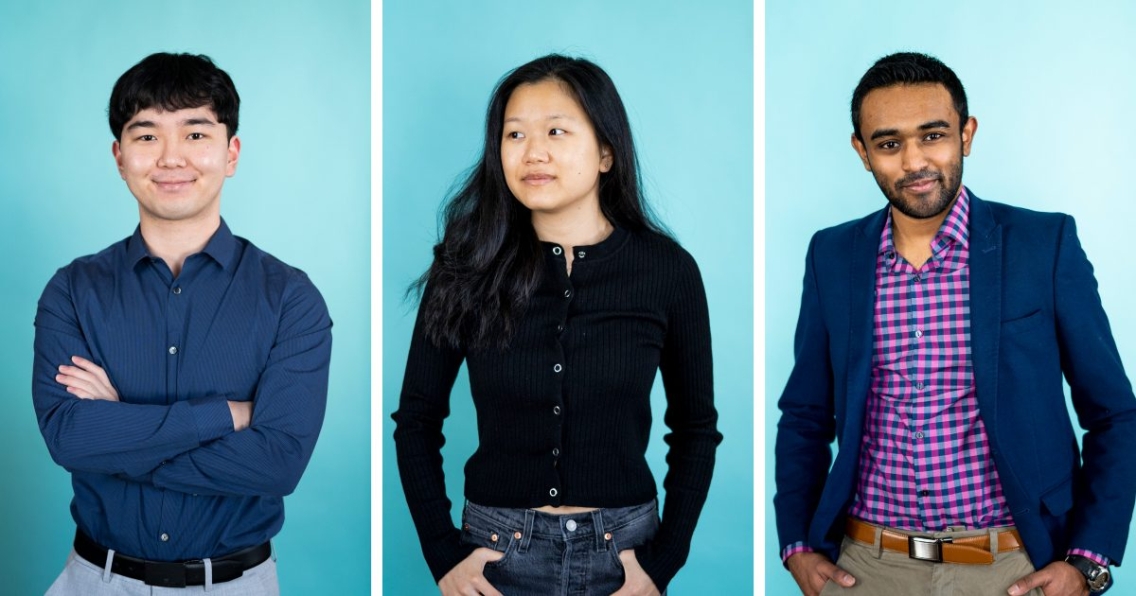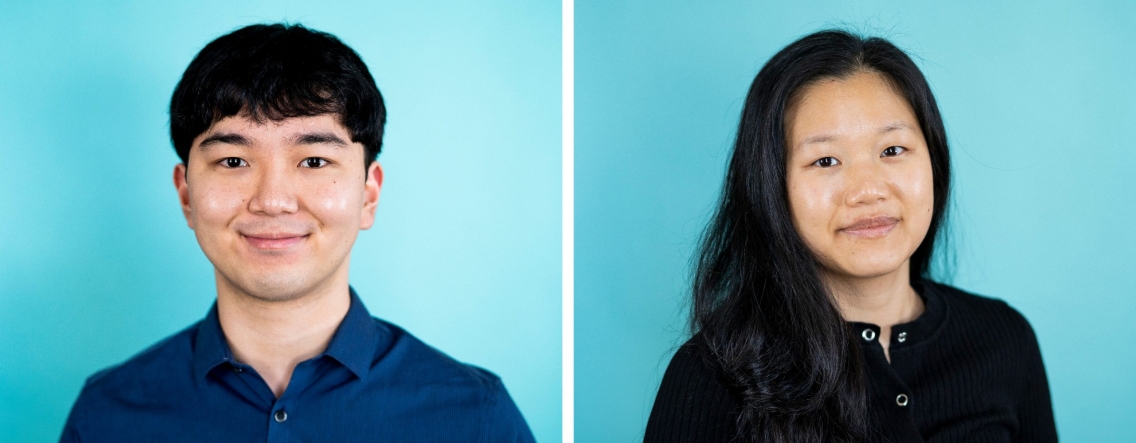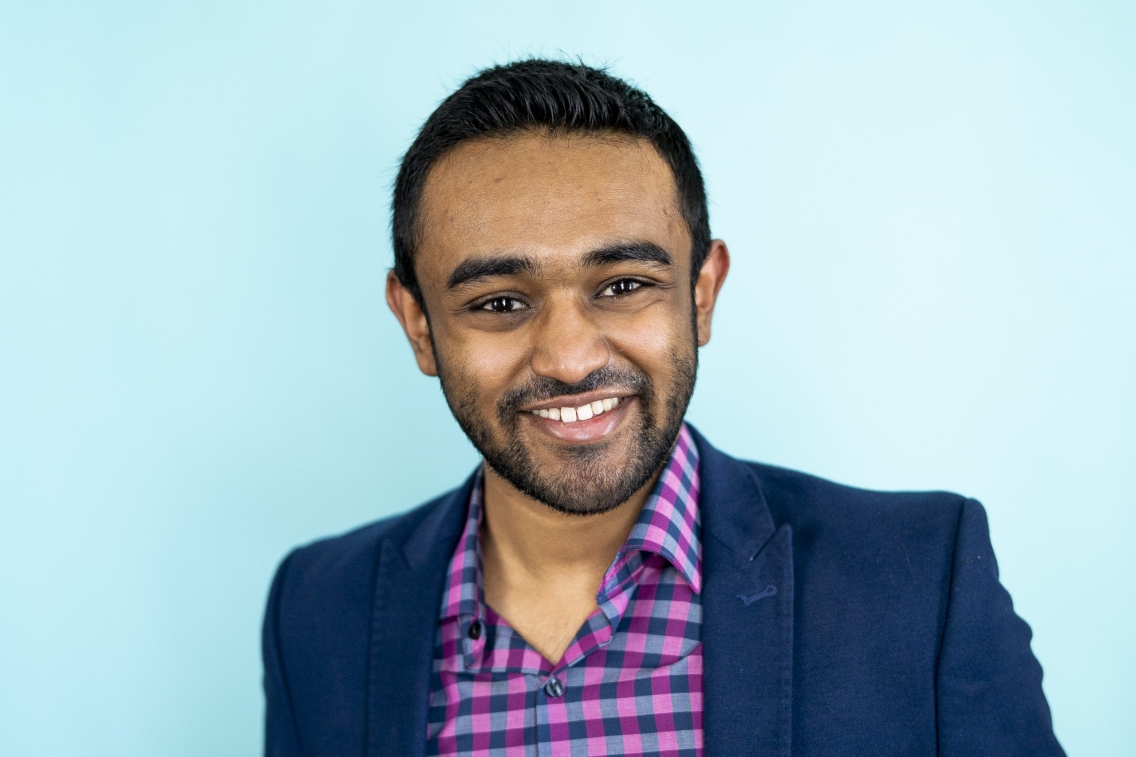Colby College Spotlights 2021 Projects for Peace Grantees
This article originally appeared in Colby News on March 9, 2021.

Naoki Kihata ’22, Jordyn Kim ’22, and Keerthi Martyn ’22 have been awarded prestigious Projects for Peace grants for projects in South Korea and Haiti.
This summer, the $10,000 awards will take Kihata and Kim to South Korea, where they’ll initiate a CCAK-like mentorship program aiming to address mental health burdens created by the pressures of the education system. Martyn will travel to Haiti, where he’ll work to strengthen the curriculum of a local college for social work by incorporating arts and art therapy.
Their projects are two of the 125 winners for 2021.
“We are thrilled,” said Kim, a mathematical sciences and biology double major and a chemistry minor.

Kim said she has thought deeply about educational pressures in South Korea and related mental health problems and suicide rates over the years. Originally from South Korea, she moved to Chicago with her family after finishing second grade. Her parents owned a “cram school” in South Korea (private schools that prepare students for high school or college entrance exams), and her aunt is still a teacher there.
In an effort to address the pressures, Kim teamed up with Kihata, a Colby Cares About Kids (CCAK) mentor, to develop their project, “Mentor-Mentee Program for Promoting Mental Health in Korean Youth.”
“Naoki and I both grew up in Asian households, and in Asian households,” Kim said, “education is emphasized heavily just because of Confucian ideals.”
Said Kihata, “not only in my household, but in a lot of my other Asian-American friends’ households, you had to have excellent academics and that was [seen as] the only way to succeed in life at all.”
Their project aims to establish a mentorship program between elementary school students and college students from Yonsei University. Modeled after Colby’s successful CCAK program, it is intended to facilitate an intergenerational exchange that would produce a crucial benefit: improved mental health among South Korean students.
Kim and Kihata cited a 2017 study by Korea’s National Youth Policy Institute, which found that about 30 percent of the students in grades four to 12 had suicidal ideation, and more than 40 percent said it was because of academic pressure. Having a mentor could reduce mental health problems, Kim said.
Kihata’s said his experience at CCAK helped him see how a program like it could impact both the mentor and the mentee. “We hope that these college students who are academically driven and involved in the community are able to serve as role models,” said Kihata, a biology: molecular biology/biochemistry major and a music minor, from Midland, Mich. They hope their Project for Peace program serves as an example of how looking up to someone can really change one’s outlook on life.
The second winning project, “Art for Peace,” was envisioned by Martyn, a government and global studies double major from Oneida, N.Y., who has been interning at Education Haiti, a Waterville-based nonprofit supporting the College of Social Work and Social Justice located in Bon Repos, Haiti.
His two-fold project will connect students from the school of social work with local artists through a one-day art symposium for peace and advocacy. This will not only showcase the artists’ works but also include lectures and talks about the inherent connection between art, peace, social work, and social justice.
“The goal is not just putting one singular solution, one symposium for one day, but also building that sustainability factor, which I think is the most important part of any project for peace,” Martyn said.

He will then work with Haitian artists and the schools’ faculty to develop art-related courses to add to the school’s offerings: one on social action through art for peace and another on art therapy for emotional healing and PTSD. “[It] addresses the school of social work’s goals for including more culturally relevant curriculum courses,” said Martyn, who conversed with the school’s dean as he developed his project proposal.
He believes that the school of social work and its students have the power to make an impact at varying levels of the society: the macro (the government), micro (individual), and mezzo (community). This kind of empowerment, he believes, will enable Haitians themselves to recognize inherent problems that they face and come up with their own solutions.
While Martyn is looking forward to launching his project, he’s also excited for the opportunity to visit Haiti for the first time. “You can read about it,” he said. “You can talk about it. You can listen to stories. But going there will certainly be different.”

